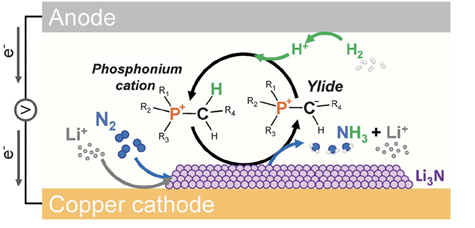SUCS Seminar: Professor Douglas Macfarlane, Monash University
Wednesday, 21 August 2024 11:00am – 12:00pm
This seminar will be delivered in Lecture Theatre 1
Speaker: Professor Douglas Macfarlane
Host: Dr Kaye Kang
Title: Towards the Ammonia Economy (and A Sustainable Global Nitrogen Cycle)
Abstract: In current discussions of new industries on the path to a zero net carbon future, “green hydrogen” – producing hydrogen and hydrogen carrying fuels using renewable energy – features prominently. The dream is capturing abundant but variable renewable resources – wind and sunshine – in a storable and transportable form, for example as “green ammonia”. This talk will look at ammonia as a hydrogen vector, for conversion back into hydrogen at point of use, or for direct use as ammonia. Of course, green ammonia will also find a primary, use in green fertilisers and other N-based compounds.
Delving deeper, the talk will discuss progress and missteps in the search for processes that can produce ammonia from renewable energy at ambient temperatures and pressures. While the reduction of N2 in aqueous media seems possible, thermodynamically, with the right catalyst, the literature is littered with false positives. On the other hand, the lithium mediated approach (Figure 1), which involves lithium electrochemistry in an aprotic electrolyte, has recently emerged1 2 as a front runner, holding the promise of a genuinely practical and high efficiency process.
However, increased use of ammonia, green or otherwise, could put pressure on the planetary nitrogen cycle and the talk will discuss the steps needed to make anthropogenic ammonia production and use genuinely sustainable.

Figure 1. Mechanism of the lithium mediated nitrogen reduction reaction in which N2 is reduced in the presence of Li+.
References
- Suryanto, et al Nitrogen reduction to ammonia at high efficiency and rates based on a phosphonium proton shuttle. Science 2021, 372 (6547), 1187-1191. DOI: 10.1126/science.abg2371.
- Du, H.-L. et al. Electroreduction of nitrogen at almost 100% current-to-ammonia efficiency. Nature 2022. DOI: 10.1038/s41586-022-05108-y.
Bio: Doug MacFarlane is a materials chemist whose research has focussed on a vast new family of materials based on room temperature liquid salts. His interests include developing the unique properties of these ionic liquids for application in renewable energy technologies, including batteries, electrolysers, phase change materials and the Carnot-battery for large-scale energy storage. His recent discoveries have demonstrated an electrolysis pathway that uses intermittent renewable energy to produce green ammonia for fertilisers and fuels and he founded Jupiter Ionics P/L to scale up the technology.
Doug is a Sir John Monash Distinguished Professor at Monash University. He graduated from Victoria University of Wellington, New Zealand with degrees in Chemistry and History and then undertook his PhD research at Purdue University. He is a Fellow of the Australian Academy of Science and was awarded the Academy’s Craig Medal for contributions to Chemistry. He is also a Fellow of the Australian Academy for Technological Sciences and Engineering and an Honorary Professor of Queens University Belfast. His group won the 2023 Royal Society of Chemistry’s Horizon Prize for Environment, Sustainability and Energy. In 2024 he was elected Fellow of the Royal Society of London.

